Among the first documents I was given after arriving in Germany was a sheet explaining Frankfurt waste separation and recycling rules. Clearly, recycling and waste management are extremely important to Germans.
And the statistics seem to show it as well: according to Climate Action, Germany has the highest municipal waste recycling rate in the world! However, recently there has been an increasing number of reports calling this title into question.
In this article, I will first explain Frankfurt waste separation and recycling rules and then why people are calling Germany’s position as recycling world champion into question.
Frankfurt waste separation & recycling rules
In 1990 Germany has introduced the “green dot” recycling system and became a recycling pioneer. Many countries have since used this system as inspiration when developing their own systems.
Household waste
According to “green dot”, household waste is separated into five categories: plastic, glass, paper and cardboard, residual waste and organic waste. In addition to that, there are rules for electronic and bulky waste. If you (or others in your building) do not follow these rules properly, the municipal administration may impose additional waste collection fees on you! So try to get it right!
Normally, your building will have bins for plastic, paper and cardboard, residual waste and often organic waste. These bins are usually emptied once a week. You can do the waste collection crew a favor by placing the respective bins out on the street. You can find a calendar with all collection dates for your area here. Only glass waste has to be taken to collection points.
In the following sections, I will explain the general rules of waste categorization. But if you are ever unsure about Frankfurt waste separation rules, you can look it up in the “Waste-ABC” of Frankfurt Waste Management.
Plastic waste
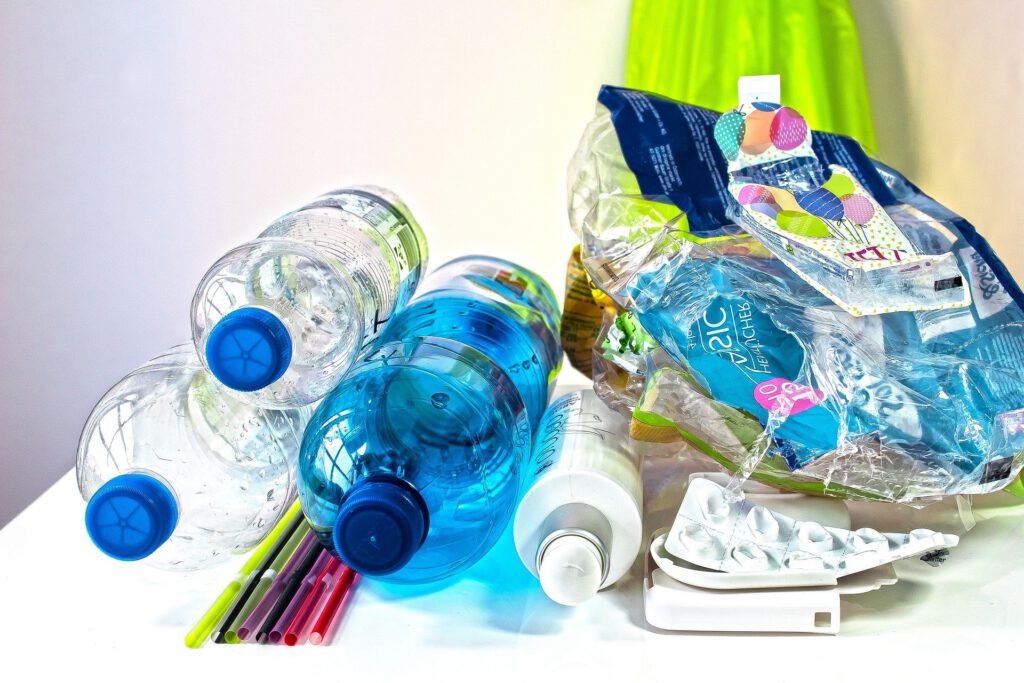
Under this category there is plastic packaging, aluminum and beverage boxes. You do not have to wash out for example yogurt cups before disposing of them- properly emptying them is sufficient. Usually you throw this waste into the bins with a yellow lid.
Paper and cardboard
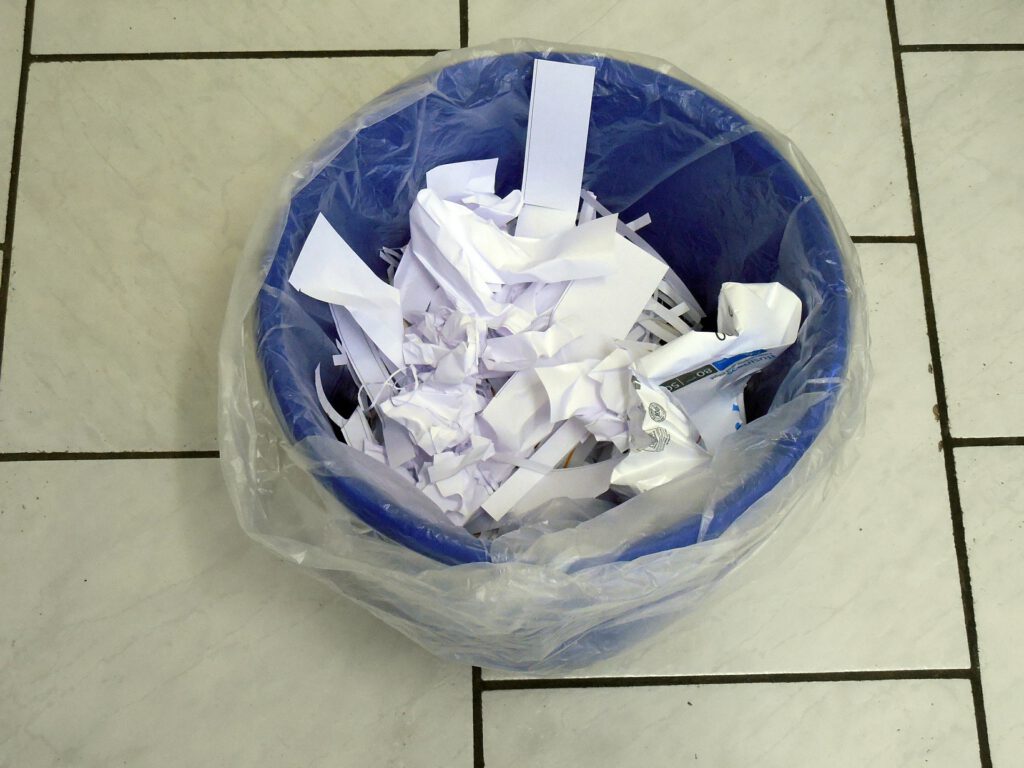
The next category is paper and cardboard. You can throw almost all paper and cardboard waste in the bin with the green lid. The exception are printed purchase receipts, as they could contain toxic chemicals. They instead belong to residual waste. The same applies for paper tissues, gift wrapping paper and baking paper.
Glass waste
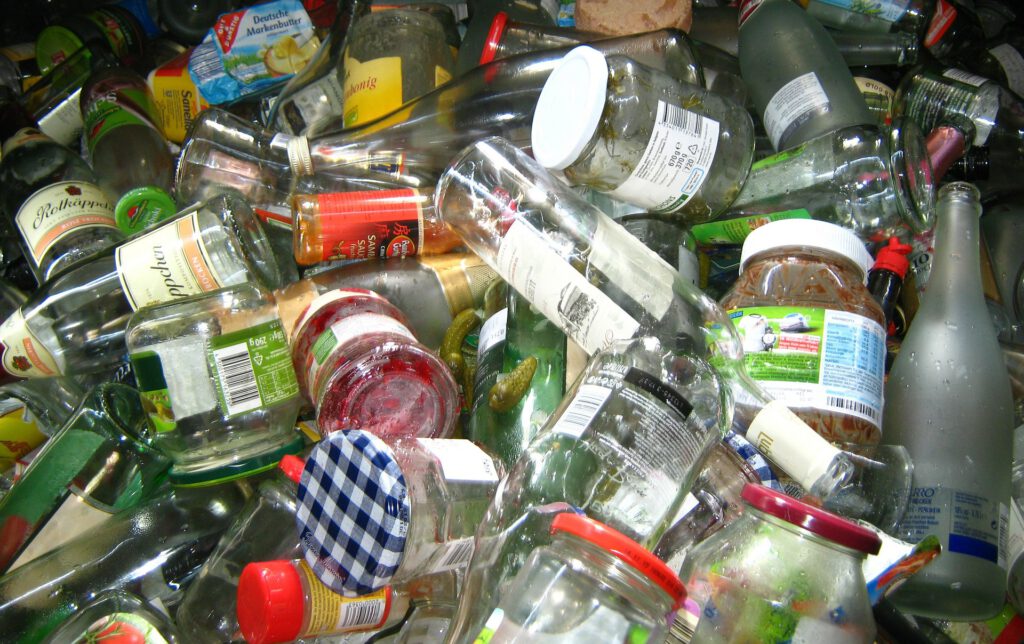
You don’t throw glass into rubbish bins like other household waste but collect it and take it to collection points. The collection points are containers with three different openings: one for white glass, one for green glass and one for brown glass. Before throwing glasses and bottles into the container, you have to rinse them out and remove the lids.
This applies only to glass used as packaging. Window or mirror glass has to be disposed of as part of bulky waste instead. You also have to throw ceramics and porcelain in residual waste.
Organic waste
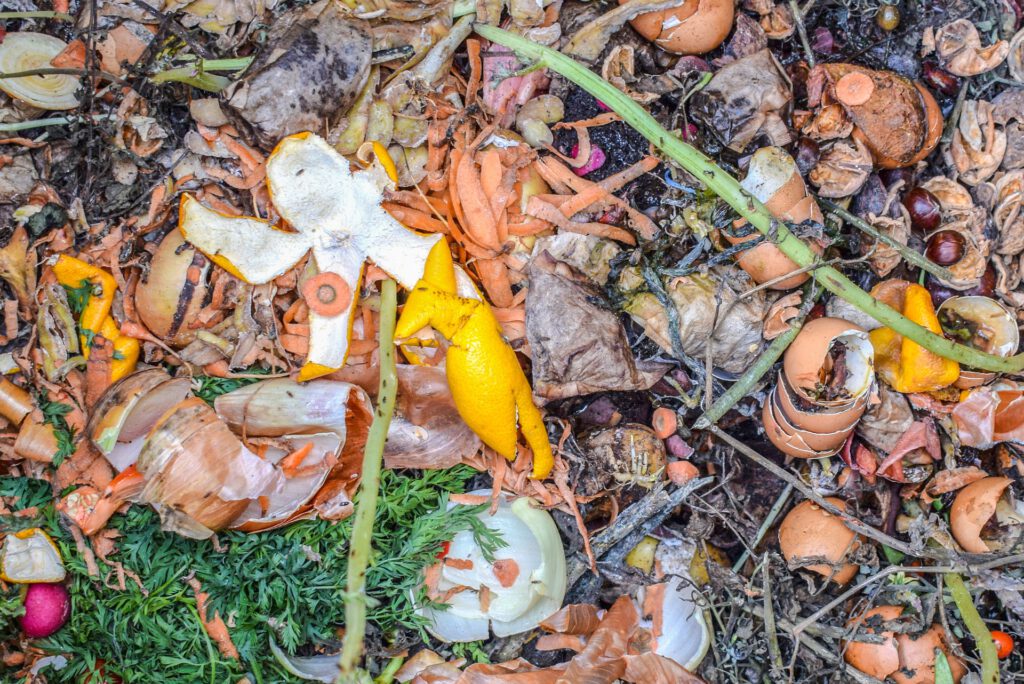
You have to check whether your building has a designated organic waste bin as not every building has one. You can identify it by its brown lid. If your building has one, you can throw all fruit, vegetables, plants, coffee filters, teabags, meat and other food scraps in this bin. If you have a large amount of gardening waste, you can also take it to a “Wertstoffhof”. You can find a map with all locations here.
You can also collect this waste yourself and use it as fertilizer for your garden. But make sure not to attract rats! You also have to tell the city that you do not wish to use the brown bin.
Residual waste
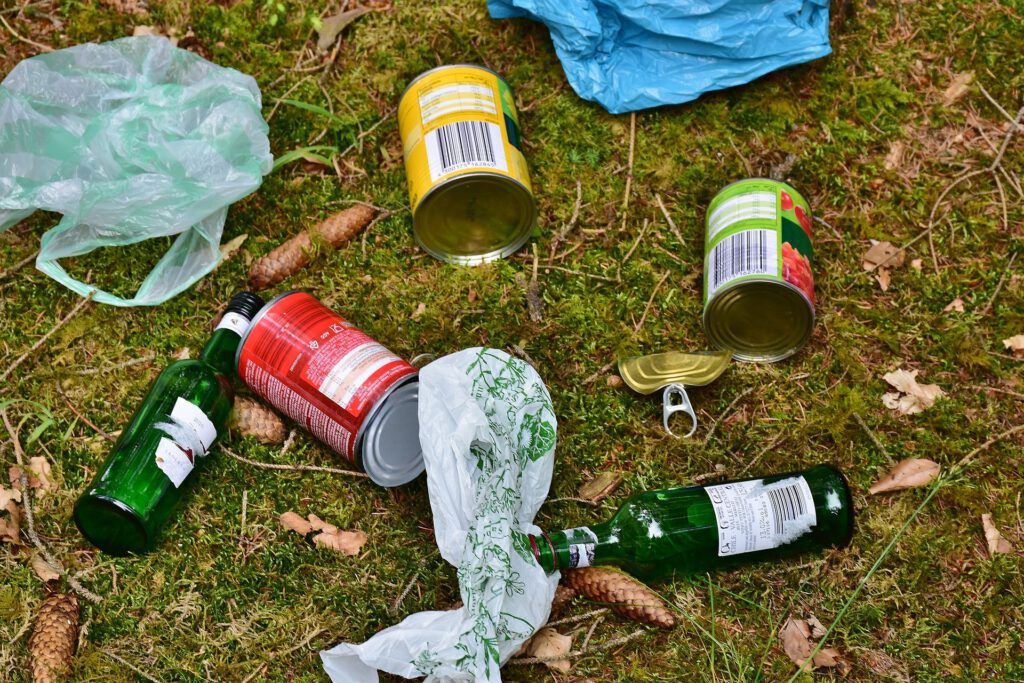
Finally, you can throw all remaining household waste into the residual waste bin with the grey lid. You can also throw old light bulbs into this bin. The only exception are items for which special rules apply like toxic, electronic and bulky waste. I will explain how to deal with these next.
Special waste
Aside from normal household waste, there are some categories of “special waste” for which different rules apply. These include toxic waste, electronic waste and bulky waste.
Bulky & electronic waste
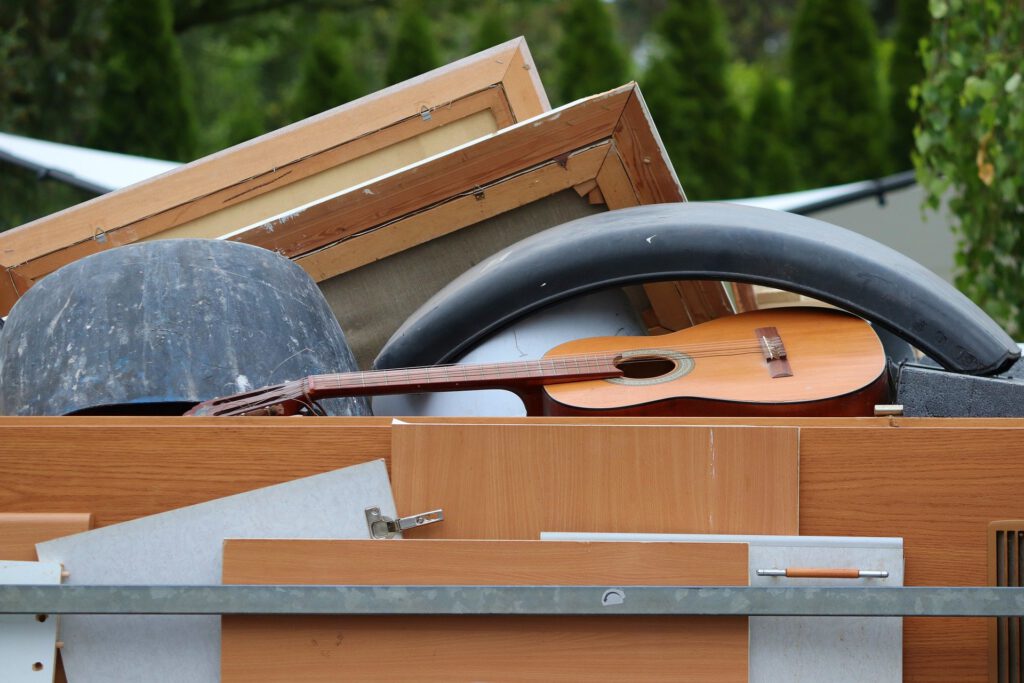
Large items like furniture are bulky waste while electronic waste refers to things like computer and fridges. You can either take this waste to a “Wertstoffhof” yourself or make an appointment with FES to come pick up up to 10m² of waste (FOR FREE!).
In some areas there is also a monthly pick up of bulky waste. You can find out if this applies to your area from your housing association or by calling 0800 2008007-10.
Small electronic waste like batteries can also be disposed of in blue collection bins in public buildings and at many places that sell batteries.
Toxic waste
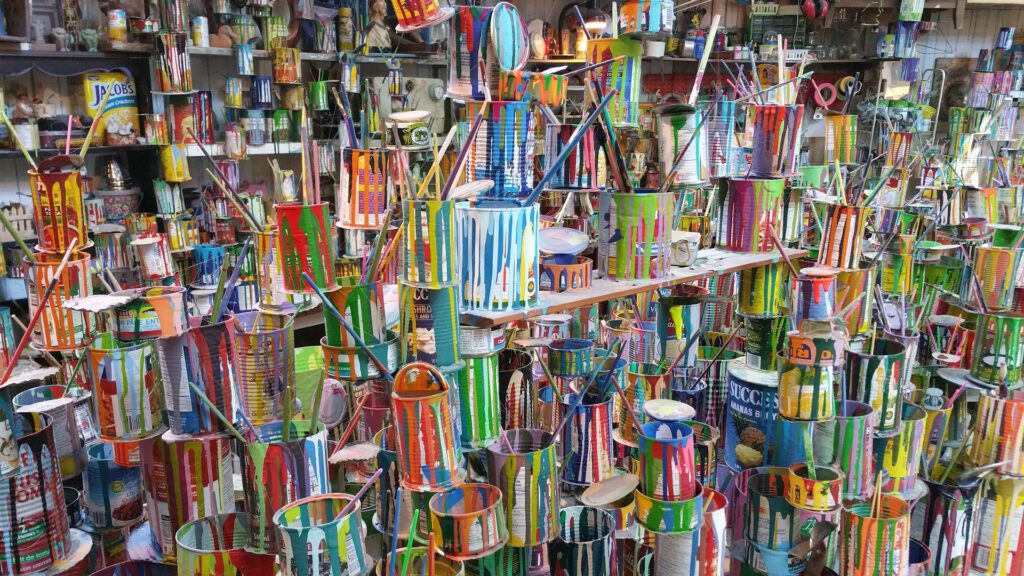
If you want to dispose of toxic waste like for example paint or specialized glue, you have two options. You can either take the waste to a “Wertstoffhof” yourself or go to the “toxic waste mobile”. You can see where the “toxic waste mobile” will be here.
How Germany is being hypocritical
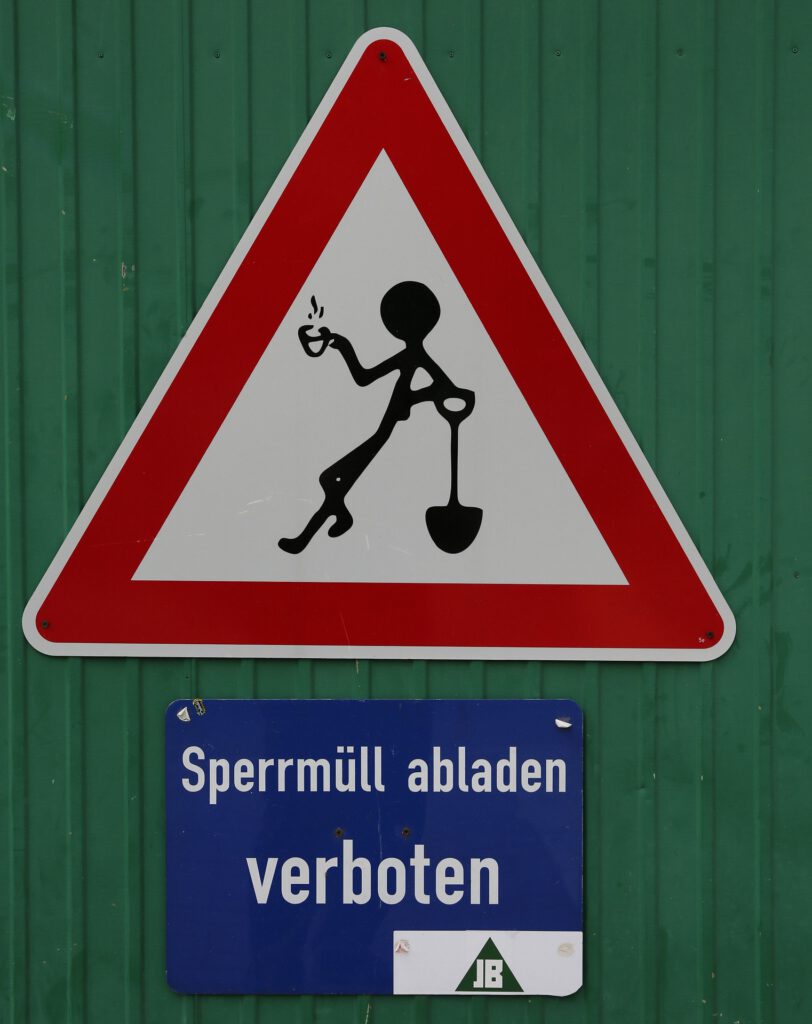
Reading the rules above, you’ll think Germany’s waste separation and recycling are organized perfectly. So why do I call Germany’s recycling hypocritical?
The first issue is that many German residents don’t actually know and follow these rules properly. I’ve had conversations with others in Germany, all of which voiced great surprise about how little of these rules many Germans actually follow. I have lived in several big apartment buildings. And in every one of them there was at least one household that didn’t care about the rules at all.
But that is not the biggest issue. The real issue is that Germany’s recycling rate is only so high because waste exported “for recycling purposes” enters into this quota. And Germany exports a lot of waste: popular German economics newspaper “Handelsblatt” even titled “Germany exports more waste than machines”.
And that waste is mostly exported to countries which do not follow waste disposal standards so strictly like China (no longer since 2018), India and the Philippines. You can imagine how little of that waste is actually recycled…
Do you have questions about waste management in Germany? How do you find the waste separation system here? And what’s your experience with waste separation and recycling in Germany? Let me know!

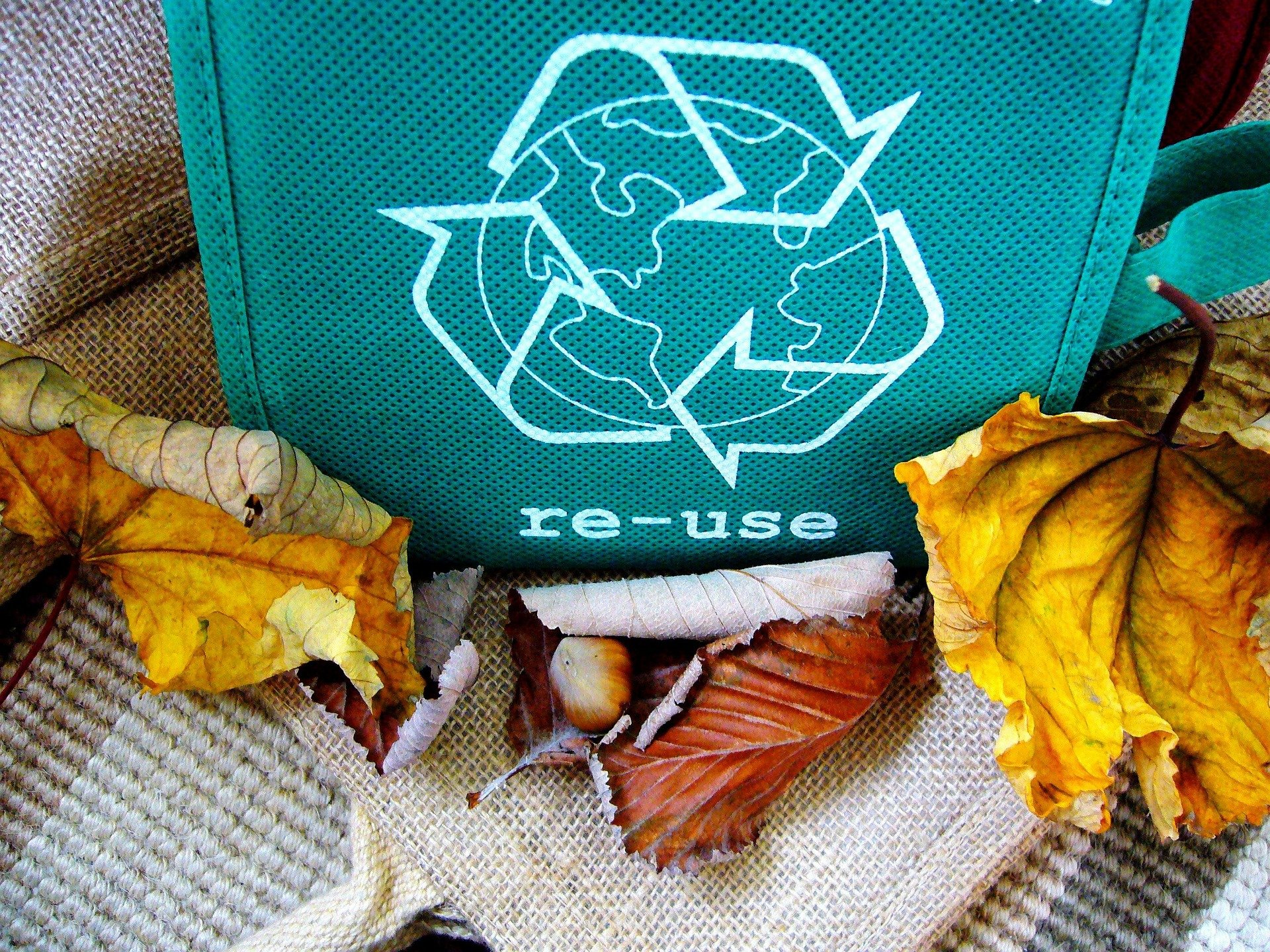
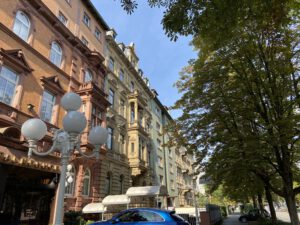


Good
Hi,how are u,thanks for your artical.Good news,yesterday,cctv1news said China stop inport waste any more.
happy new year.wait for your new article